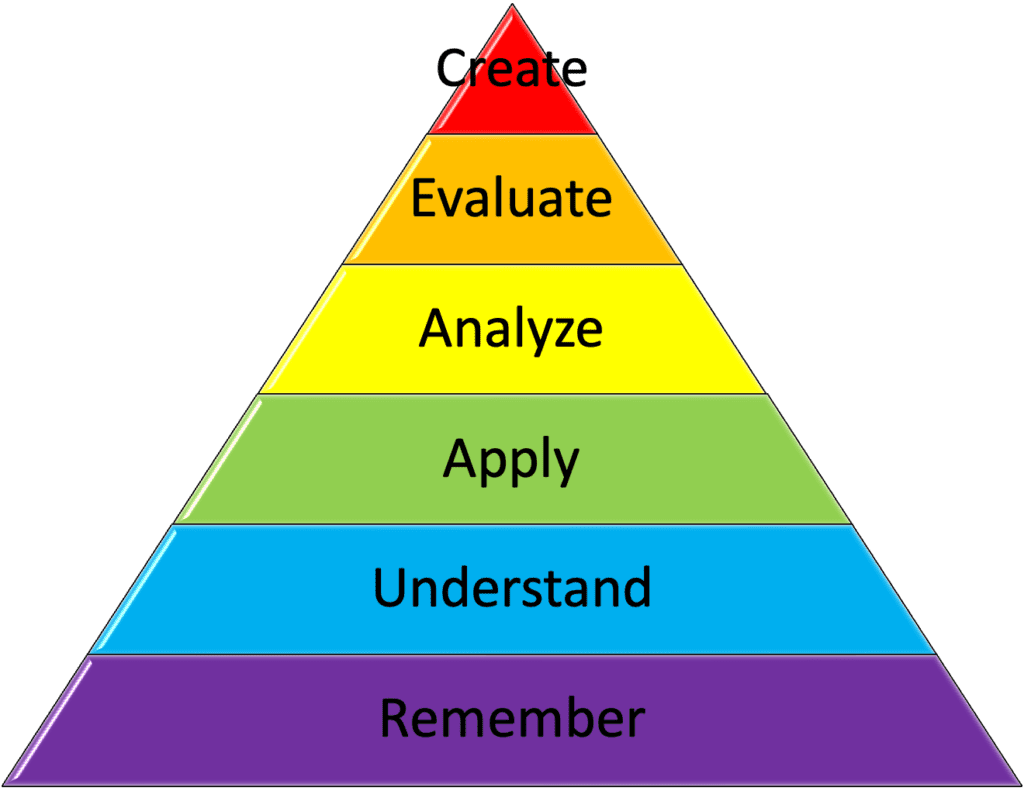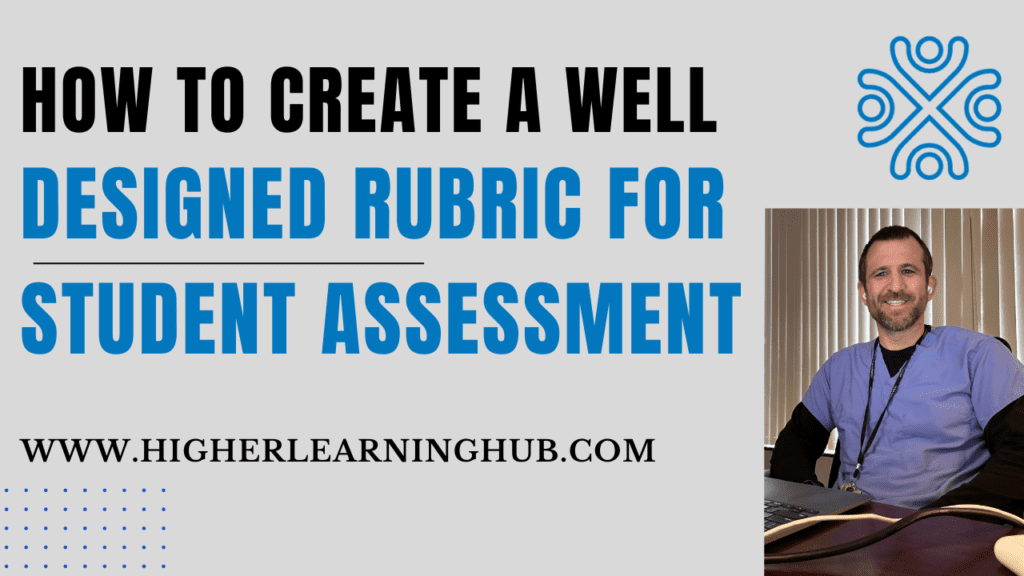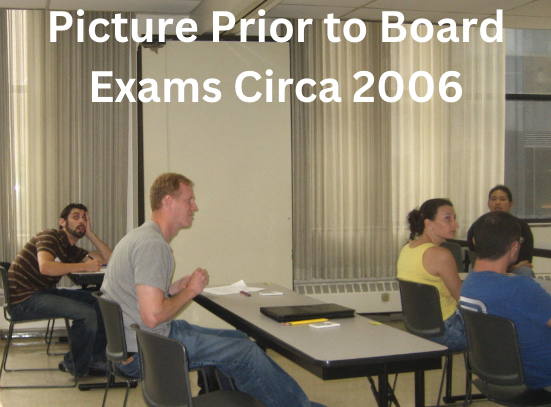Authored by Leland Jaffe DPM, FACFAS – Associate Professor and Dean – Authored on January 2nd, 2024
Guest Contributions From Dr. Jeff Dikis and Dr. Jim McDannald – Read till the end!
Higher education is a transformative journey filled with academic challenges, personal growth, and the promise of a rewarding future. Amidst the scholarly pursuits, one aspect that often takes a back seat is financial literacy/personal finances. It’s crucial to navigate and learn best practices in the intricate world of personal finances to ensure a stable foundation for our academic and professional futures. In this blog post, we’ll explore key principles of financial literacy tailored to the unique circumstances of graduate students to help get rid of student loan debt.
I don’t pretend to be a financial advisor, but I was able to learn about money management and improve my financial health during the past 10 years. Unfortunately, there is little education provided to college students and graduate students regarding finances. I can’t stress enough how important it is for young people and college graduates to improve their financial literacy, as your future self will thank you!
Budgeting for Success
The cornerstone of financial literacy is budgeting. As graduate students, our incomes may come from various sources such as stipends, part-time jobs, or research assistantships. Begin by tracking your income and identifying fixed expenses like rent, utilities, and groceries. Allocate funds for discretionary spending but remain mindful of your financial goals. A well-crafted budget empowers you to make informed financial decisions and avoid unnecessary financial stress.
Be Intentional About Your Spending
There are many budgeting tools and apps available to make this process painless, however, my favorite is to use an old-fashioned Excel sheet. To achieve financial success, you need to be intentional about where your money is going each month. Writing down my income and expenses every month has had a significant positive impact on my overall financial health.
Understanding Student Loans
Student loans often accompany the pursuit of higher education, and this is a great opportunity to achieve success. Take the time to understand the terms of your loans, including interest rates and student loan repayment plans. Consider making interest payments while in school to minimize long-term debt. When repayment begins, explore income-driven repayment plans that align with your financial circumstances. Being proactive about your student loans ensures a smoother transition into the post-graduate phase of your life.
Subsidized versus Unsubsidized Loans


Subsidized and unsubsidized student loans are two common types of federal loans that provide financial assistance to students pursuing higher education. Subsidized loans are need-based, and the government covers the interest that accrues while the borrower is in school, during the grace period after graduation, and in deferment. This means that the borrower isn’t responsible for the interest during these periods, lightening the debt levels for the borrower. On the other hand, unsubsidized loans are not need-based, and interest begins accruing from the moment the loan is disbursed. While students have the option to defer interest payments until after graduation, choosing to do so can result in a larger overall loan amount. Understanding the distinctions between subsidized and unsubsidized loans is crucial for students making informed decisions about their financial aid options.
Private versus Federal Loans
Private and federal student loans are two distinct options for financing higher education, each with its own set of characteristics and implications. Federal student loans are funded and administered by the U.S. Department of Education, offering advantages such as fixed interest rates, income-driven repayment plans, and forgiveness programs. These loans are generally more flexible and borrower-friendly, making them an attractive choice for many students.
On the other hand, private student loans are provided by banks, credit unions, and other financial institutions. They often come with variable interest rates and fewer borrower protections compared to federal loans. Private loans may be suitable for those who need additional funds beyond what federal loans cover, but borrowers should be cautious as they may face higher interest rates and less favorable repayment terms. The decision between private and federal student loans depends on factors like interest rates, repayment terms, and the borrower’s financial situation. It’s essential for individuals to thoroughly research and understand the terms of each option before deciding which type of loan best fits their needs.
Investing in Your Future


Financial literacy extends beyond managing expenses; it involves strategically investing in your future. Explore retirement savings options available to graduate students, such as individual retirement accounts (IRAs) or employer-sponsored plans. While retirement may seem distant, starting early can significantly impact the growth of your investments over time. Consider it a gift to your future self. A phrase coined by The Money Guy Show I wish I had known in my 20s was “It’s not about TIMING the market, but TIME IN the market”. The earlier you start investing, the more opportunity to give your investments to compound and grow over time! I started investing for my future about a decade after I should have, don’t make this mistake. Check out this money multiplier tool to see how much your money can grow, especially if you start early!
Should you invest for retirement, or pay off your student loans first…? See what the professionals say regarding managing your money!
Building an Emergency Fund
Life is unpredictable, and emergencies can arise when least expected. Building an emergency fund is a crucial aspect of financial planning. Aim to set aside a portion of your income regularly to create a financial safety net. This fund provides peace of mind, allowing you to tackle unexpected expenses without derailing your financial goals.
Benefits of High Yield Savings Account vs a Traditional Savings Account
Investing money in a high-yield savings account can be a prudent financial move for individuals seeking a secure and relatively low-risk option to grow their savings. High-yield savings accounts typically offer a higher annual percentage yield (APY) than traditional savings accounts, allowing for more substantial interest earnings. Most of the high-yield savings accounts provide about a 4% or higher return these days, with the brick-and-mortar banks yielding < 0.1% interest rates on savings accounts.
Online banks often provide high-yield savings accounts, and while they may not provide the same returns as riskier investments, they offer a balance between growth and accessibility. With no or minimal fees and FDIC insurance covering deposits, high-yield savings accounts provide a safe haven for emergency funds or short-term savings goals. Regularly contributing to such an account allows individuals to watch their savings grow while maintaining liquidity for unforeseen expenses. It’s a sensible strategy for those prioritizing financial stability and a modest yet dependable return on their savings.
Take Advantage Of Campus Resources
Universities recognize the importance of financial literacy and the financial challenges endured by students and often provide a financial literacy program. Attend financial literacy workshops, utilize counseling services, and explore online resources offered by your institution. From scholarship opportunities to budgeting tools, these resources can enhance your financial knowledge and empower you to make informed decisions about your financial situation.
Hindsight is 20:20 – What I Would Have Done Differently
1) Expand my financial aid literacy and attend a personal finance course in medical school
I hate to admit it, but it took me until my late 20s to understand the difference between a Roth and Traditional IRA, and what a 401k account is. Don’t make this mistake! Educate yourself early on by attending a financial literacy course, as undergraduate students as well as graduate students need to learn personal financial management skills.
2) Make long term, as opposed to solely short term financial decisions.
Investing just $1 as a 20-year-old has the potential to turn into $88 by the time that person turns 65. However, if you invest that same $1 at 40 years of age, that $1 will likely only turn into just over $7. Remember, it’s about time in the market, not timing the market – START EARLY! The best time to start investing in your future is now.
3) Create a budget, and stick to your plan
In my 20s, I didn’t have a financial plan and had no idea how much money was coming in and leaving each month. This is a bad idea! Making better financial decisions in your 20s can have a profoundly positive impact on your future.
4) My thought process was: “As long as I can afford the monthly payments, I can afford this ________”
You can fill in this blank with anything from a car, house, or anything else that you could finance. I realized later in life that banks or other businesses are very happy and excited to loan you money and charge you interest on the repayments. Of course, you will likely need to finance a larger purchase such as a home or car, but there are specific guidelines that can help you make this financial decision wisely. In my 40s, I am very thoughtful before financing any purchase, even if I can afford the monthly payments. Also, I will NEVER carry high interest from credit cards, as it will be impossible to gain financial traction with this anchoring you down.
Despite making these mistakes in my earlier years, I’ve still been able to make changes that have benefited my financial situation. I have gained various financial skills through books, podcasts, and other online tools that have helped me make important financial choices. I’m a huge advocate for higher education, and I would not be where I am today without my education. Undergraduate and graduate-level education can have significant positive effects on your future financial situation, you just need to educate yourself early and minimize financial mistakes.
Advice From Dr. Jim McDannald – Podiatrygrowth.com


Every podiatry student begins their financial journey from a unique starting point. Whether you are single or married with children, carrying the weight of undergraduate debt, or fortunate enough to have none, these factors significantly influence your financial landscape.
However, the key to navigating toward financial freedom lies not in your starting position but in the proactive steps you take to educate yourself. Diving into personal finance books and regularly engaging with insightful finance blogs are excellent ways to build a strong foundation. These resources offer a wealth of knowledge, from basic financial principles to advanced investment strategies, tailored to help you navigate your personal and professional life.
By prioritizing financial literacy, you equip yourself with the tools and insights necessary to make informed decisions, paving your way toward a secure and satisfying financial future.
Here are a few of the resources that will help you get started:
Books:
- I Will Teach You To Be Rich by Remit Sethi – https://amzn.to/3tFYoTV
- The White Coat Investor’s Guide for Students by James M. Dahle, MD – https://amzn.to/3NQIVqY
- The Bogleheads’ Guide to Investing by Taylor Larimore, Mel Lindauer and Michael LeBoeuf – https://amzn.to/3tJQWr1
- The Millionaire Next Door by Thomas J. Stanley Ph.D. and William D. Danko Ph.D – https://amzn.to/3vsjea8
- Simple Path to Wealth by JL Collins – https://amzn.to/3ROVBjg
- Your Money or Your Life by Vicki Robin and Joe Dominguez – https://amzn.to/4aHI6KZ
- The Psychology of Money by Morgan Housel – https://amzn.to/3vkwVaV
Financial Websites:
Financial Advice From Dr. Jeff Dikis, 1/2 of @footdocduo
Creating a financial plan and sticking to it can be difficult. Residents and young attendings don’t know what they don’t know. They don’t know whether to save for a house, save for retirement, repay student loans, build up an emergency fund, or give in to the temptation of spending that newfound doctor money.
The hard part about all of this is that there may not be one right answer. The financial situation of each individual varies widely. Is the doctor the sole provider for the family? Are they a two-doctor income family? (which may sound great, but it just means they have twice the student loans). Do they live in a high-cost-of-living area? Do they have kids? Do they take care of any other family members? You get the idea.
Following some basic tenets of financial literacy should set them up for success, or at the very least avoid catastrophic failure. Creating a budget and sticking to it is very important, as it ensures that you aren’t living beyond your means.
Student loans may either be the biggest drain on your income or could potentially be a low-cost investment vehicle. In the very recent past, it was common to refinance loans around 2%, and it made much more sense to invest that money instead of paying off the loans. Recently, student loan interest rates have risen with inflation and increasing federal interest rates. In that case, it makes more sense to aggressively pay off loans, which is essentially a guaranteed rate of return for every dollar you pay off (as opposed to paying interest on it).
One of the more difficult decisions that young attendings face is whether to pay off student loans or save for retirement. On one hand, you could aggressively pay off loans but have much less in retirement when the time comes. On the other hand, you could save up a large retirement nest egg but continue to pay exorbitant interest rates on student loans over a long period. We decided to split the difference and do some of both. Any 401(k) (or 403b) retirement match from your employer is essentially free money. I would strongly recommend at least contributing the equivalency of the match percentage from your employer towards retirement. Refinancing any student loans at the lowest rate possible will end up saving a lot of money in the long run. The alternative option would be to apply for loan forgiveness programs. The caveat with loan forgiveness would be trying to ensure that you will be at a job that qualifies for at least 10 years. If you end up leaving for a new job that does not qualify, you accrue quite a large additional sum to the student loans, effectively increasing your overall debt.
We saved a decent amount in an emergency fund during residency, which ended up helping us quite a bit as we transitioned into practice. It can be expensive to move across the country and buy a house or start renting. And there is usually a more significant delay in starting a job than you might think. Some people assume that you will just start making money right after residency, however, it takes quite a bit of time to get state licensing, and insurance credentialing, start the job, and then begin collecting payments. All of those add up to potentially a few months that you are not receiving income. Having an emergency fund is crucial in that situation.
One specific financial decision that we would make differently is that we would have done income-based repayment as residents. We chose to go into forbearance, which sounded great, as you do not have to make any student loan payments, however, interest continues to accrue. At the time it seemed like something we would worry about in the future, however, if we could go back and do it again, we would certainly have made income-based repayments as residents, and ended up with much less student loan debt when starting as attendings.
Finally, I would strongly recommend seeking financial advice as much as possible. There are many podcasts, books, and websites out there with lots of good information. I would be hesitant about taking financial advice from anyone who has a vested interest in trying to make money from you. It is usually best to hire a fee-only financial advisor, rather than someone trying to sell you a product, or who charges assets under management (AUM) fees.
You work hard for your money – you might as well try to keep as much of it as possible.
A special thanks to Dr. Jeff Dikis and Dr. Jim McDannald for your insight regarding the importance of financial literacy for students!
Here’s to mastering our finances and working towards financial freedom in 2024!







